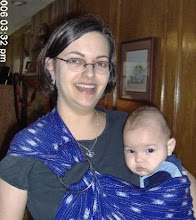California - Midwife surrenders licenses to regulatory boards.
Florida - Linda McGlade and her daughter-in-law, Tanya McGlade, will get a new trial after being convicted in 2006 of practicing midwifery without a license, a third-degree felony:
Under the law, there are three components to midwifery: supervising labor and childbirth; advising as to the progress of the childbirth; and rendering prenatal and postpartal care. Also, there is no standard instruction for the crime of midwifery, according to the 4-page ruling written by Chief Judge Stevan Northcutt.Judge Nicholas may have misled jurors to believe they could use only one of the three elements of the charge to determine if the McGlades were guilty, according to the higher court's ruling.
"In the absence of a standard jury instruction, the trial court clearly attempted to craft a proper instruction by employing the statutory language," Northcutt wrote in his opinion. "A defendant is entitled to have the jury correctly and intelligently instructed on the essential and material elements of the crime with which she is charged."
The court "rejected the McGlades’ claim that they were entitled to a jury instruction on the defense they were engaged in the free exercise of religion" (Link). The full court opinion is available here (pdf).
Missouri - Midwife legislation still stalled in Senate; Fierce Debate Over Midwifery Licensure; Midwifery bill runs into issues in Senate.
Pennsylvania - Diane Goslin's case in the news. Midwives Alliance of Pennsylvania has more information.
Also check out Midwifery World's Legal Cases in the News.



